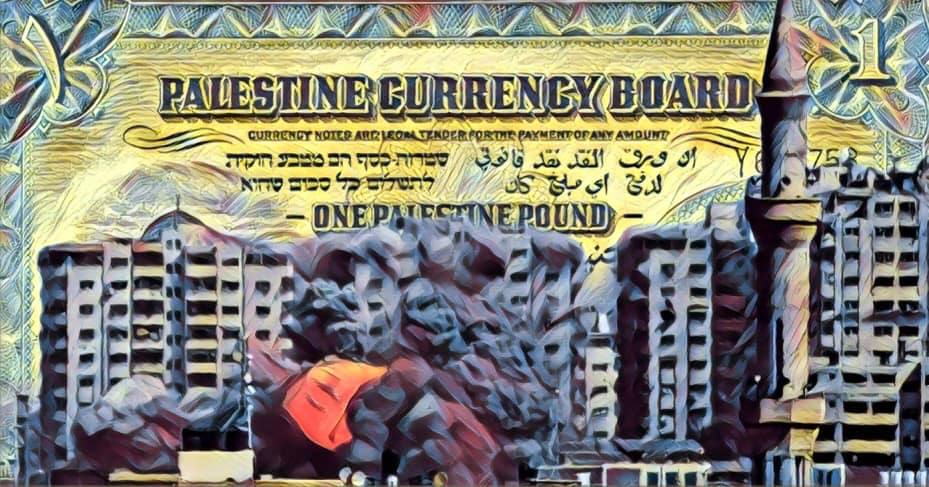What the Gaza War Did to the Palestinian Economy
According to a report by the United Nations Development Programme (UNDP), the Gaza war in the past month has significantly damaged the economic infrastructure of the Gaza Strip and the West Bank, to the extent that it is said the Israeli army’s attacks have caused the Palestinian economy to experience a setback of 10 years. It is also estimated that if the war continues for the next month, Palestinian citizens will witness a 20-year regression in their livelihoods.
The UNDP has reported on the dire economic situation in the Gaza Strip and the West Bank. This report, based on information released by the Palestinian Ministry of Health, was made public by Abdullah Al-Dardari, the UNDP director in the West Bank. According to the statistics in this report, the unemployment rate in Gaza has exceeded 70 to 75 percent, effectively disrupting people’s livelihoods. The report addresses the economic consequences of the Gaza war on the lives of Palestinian citizens, highlighting the depth of the economic disaster in the Gaza Strip and the West Bank.
Destruction of Infrastructure and Displacement of the Workforce
According to statistics announced by the Gaza Ministry of Health, over the past month, more than 1.5 million Palestinian citizens in the Gaza Strip have been displaced. Reports indicate that many of these people have lost their homes due to Israeli army bombings.
On the other hand, most of the Gaza refugees have become homeless following an Israeli ultimatum on November 9, 2023, to evacuate the northern areas of this region. Therefore, one can say that in addition to the humanitarian disaster ongoing in the Gaza Strip, the war in this part of the Middle East has other dimensions, one of the most significant being the displacement of the workforce, which can impose the consequences of this devastating war on Palestinian citizens for decades.
The Poverty Line in Gaza Has No Meaning
According to the UNDP report, more than two-thirds of the Gaza Strip’s residents are below the poverty line and face the harshest living conditions. It should be noted that the end of the war will not mean a return to the days before the Israeli army’s bombings in the Gaza Strip. In other words, the jobs lost and the displaced workforce will not be able to engage in productive economic activities anytime soon due to the destruction of infrastructure.
However, reports have also been published indicating that around 400,000 people have been added to the population below the absolute poverty line in the Gaza Strip. Of course, this figure is very different from the poverty line report in the Gaza Strip and is based on severe and absolute poverty. Therefore, the UNDP has expressed concern that in the coming weeks, if Israel does not allow international aid to enter Gaza, the hunger crisis in this part of the occupied territories will intensify.
In other words, it can be said that the poverty line in the Gaza Strip has lost its defined meaning in economic forums because the vast majority of citizens in the Gaza Strip are poor, and a significant number are considered absolutely poor.
A 20-Year Setback
The unemployment rate in the Gaza Strip before the operation known as Al-Aqsa Storm on October 7, 2023, was about 48 percent. However, evidence suggests that around 70 percent of jobs in the Gaza Strip have been lost, resulting in an unemployment rate of over 80 percent for the workforce in Gaza. It should not be forgotten that the 20 percent currently working are residents of southern Gaza, and if the Israeli army continues to occupy lands in the Gaza Strip, soon even this small number will lose their job opportunities.
On the other hand, the unemployment rate in the West Bank has also risen from 12 percent before October 7, 2023, to over 30 percent now. This level is unprecedented in the history of border changes in the occupied territories and has effectively sounded the alarm for a widespread economic crisis in the West Bank.
Abdullah Al-Dardari, the director of the UNDP in the West Bank, also told CNN in this regard, ‘I have been directly following the news of the conflict between Israel and the Palestinians for over 30 years, but I have never witnessed such a massive shock. In my opinion, if the war continues for another month, the Palestinian economy will experience a 20-year setback.’
According to the UNDP report, if the Gaza war continues until mid-November, about 500,000 Palestinians will be added to the population of the hungry and absolutely poor. In other words, if the war continues, the rate of absolute poverty in the West Bank and the Gaza Strip will increase from 15 percent to 32 percent.
As previously mentioned, the UNDP has reported the destruction of economic infrastructure in the Gaza Strip and the West Bank. The UNDP director in the West Bank told CNN that almost everything built in Gaza since 2002 has been destroyed, and the labor market infrastructure is practically out of reach.
Collapse of a Fragile Economy
On the other hand, reports have been received about a significant number of investors and entrepreneurs in Gaza and the West Bank being killed or injured. Simply put, neither are the infrastructures in place, nor is there money to rely on to rebuild the Gaza Strip and the West Bank. The small and fragile Palestinian economy, with a volume of less than $20 billion, as reported by the UNDP, is not only experiencing a 20-year setback but also cannot manage even the most basic affairs of its citizens without international aid.
Moreover, all the mentioned points and estimates are valid only if Israel stops the bombings and the war is halted as soon as possible, and a ceasefire is established. Otherwise, the dimensions of the disaster will expand day by day, and practically nothing but ashes will remain of the fragile Palestinian economy.

